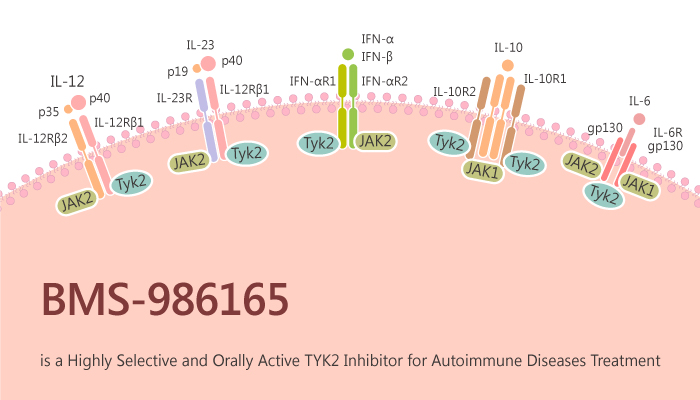Janus kinases are non-receptor tyrosine kinases. In mammals, the family has four members, Jak1, Jak2, Jak3 and Tyrosine kinase 2 (Tyk2). Particularly, the JAK inhibitors offer a new pharmacological strategy for the treatment of a range of autoimmune disorders. In this study, Stephen T. Wroblesk, et al report the discovery of BMS-986165. BMS-986165 is a high affinity JH2 ligand and potent allosteric inhibitor of TYK2.

To date, all known small molecule JAK inhibitors are active site-directed inhibitors that bind to the adenosine triphosphate (ATP) site of the catalytic domain (also referred to as the JH1 or “Janus Homology 1” domain) of the JAK protein. Especially, these small molecule JAK inhibitors prevent catalytic activity of the kinase by blocking ATP, downstream phosphorylation, and resulting pathway signal transduction. In contrast, BMS-986165 differentiates from previous JAK inhibitors due its unique ability to selectively bind to the pseudokinase (JH2) domain of TYK2 and inhibit its function through an allosteric mechanism.
As noted, BMS-986165 is a potent allosteric inhibitor of TYK2 that acts by binding to the TYK2 JH2 domain with high affinity (IC50=0.2 nM). Moreover, BMS-986165 achieves remarkable selectivity over inhibition of catalytically active JH1 domains of the JAK family. Furthermore, BMS-986165 has demonstrated robust efficacy in murine models of lupus nephritis and inflammatory bowel disease. BMS-986165 shows minimal profiling liabilities, excellent harmacokinetic properties. BMS-986165 is highly efficacious in inflammatory and autoimmune disease models.